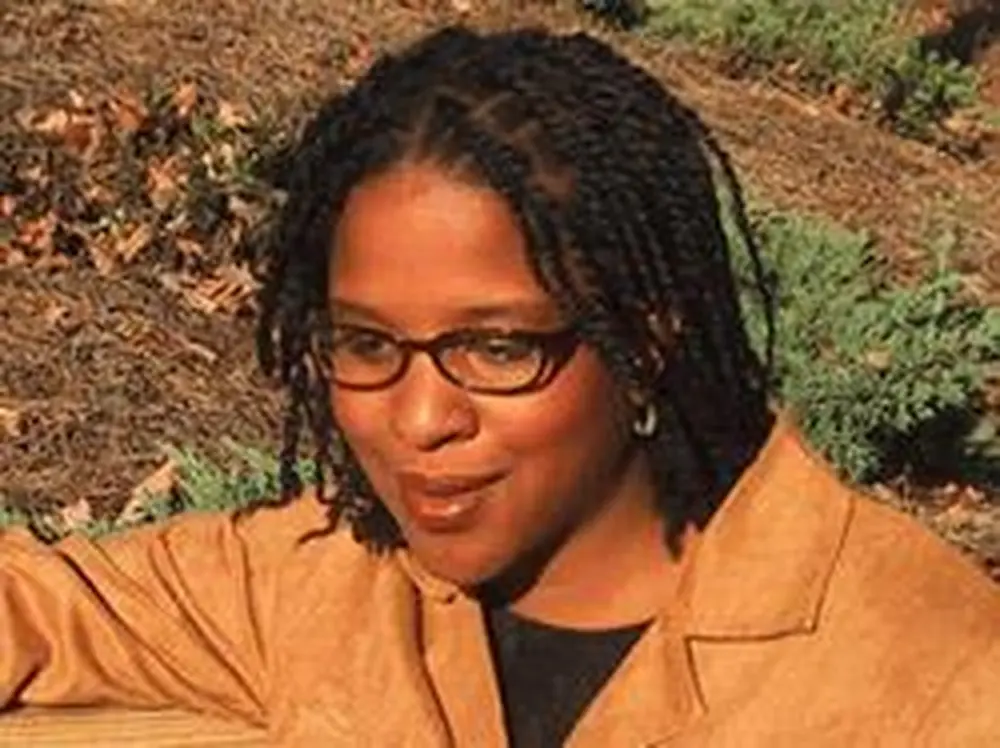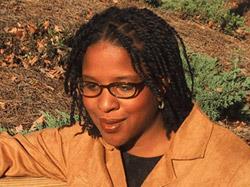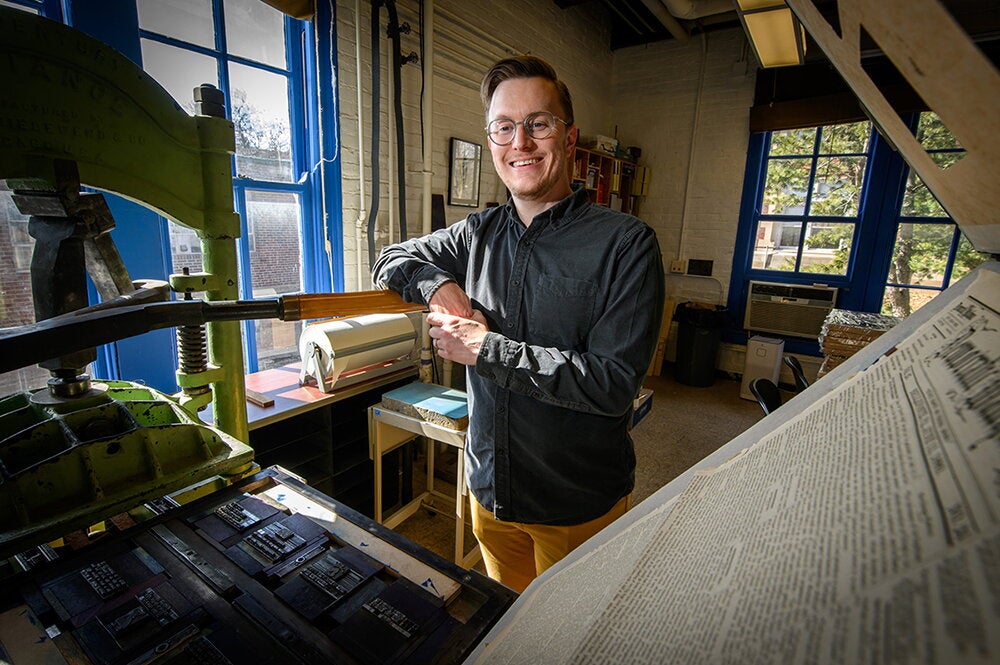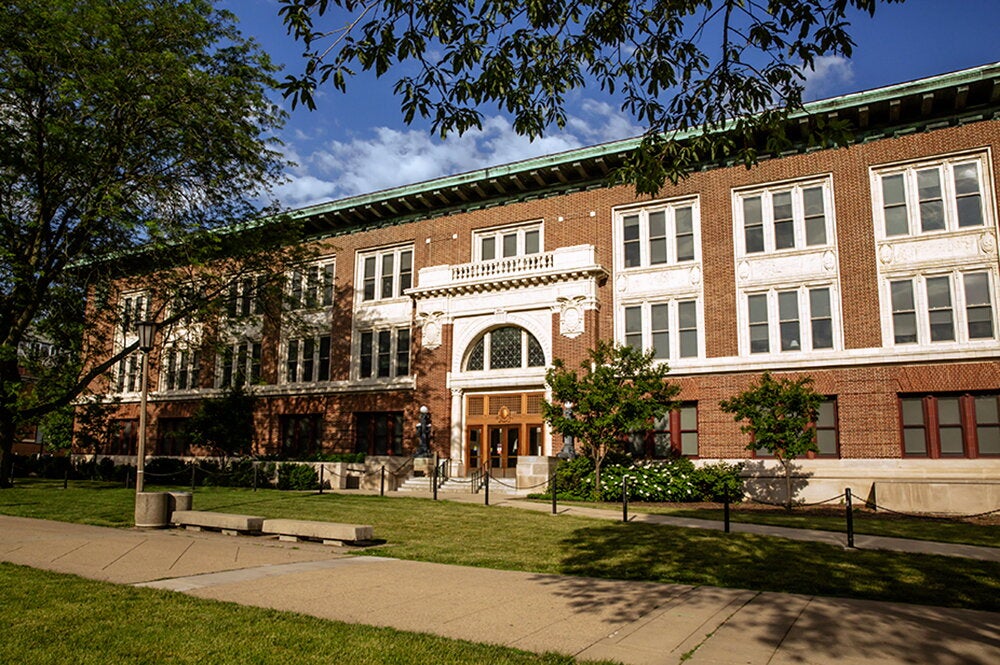

For Tayari Jones, the recent reopening of the 20-year-old case against convicted child murderer Wayne Williams is not so much a revisiting of ancient wounds but rather like agitating "a bone poorly set-painful, crooked, and gimpy." The LAS assistant professor of English and the author of two novels was an 11-year-old witness to the fear that beset her neighborhood from 1979 to 1981 and, indeed, to this very day. Thirty African American children-mostly boys-were murdered or simply disappeared during the 18 months that a serial killer held the city hostage.
The fuel that drives the emotional engine of her first novel Leaving Atlanta comes from Jones' experience as a fifth-grader at Atlanta's Oglethorpe Elementary School. She remembers how the crimes brought to light previously hidden class distinctions within the African American community. Jones recalls that before the murders began, conditions such as high mortality rates for underprivileged African Americans in Atlanta were sometimes overlooked-even by some of the city's most prestigious leaders such as Andrew Young and Julian Bond.
"I saw this as a precursor for some of the serious cultural movements that happened all over the country, not just in Atlanta," says Jones. "The murders exacerbated tensions within the African American community about class. The victims weren't the 'right' kind of black people. You wouldn't believe the intra-racial tensions in the city. It even affected how best to protect the children. There were unemployed black men on the streets armed with baseball bats stopping anyone who seemed suspicious."
In contrast to the "bat patrols," the mayor's approach, Jones says, was to form a task force and offer a $100,000 reward. "Everyone did the best they could but what people thought was best was really about race and class."
Even when the 23-year-old Wayne Williams was eventually arrested and convicted in 1982, race remained at the forefront. Williams was an African American and Jones says it was a humiliation for her community that had suspected the murders were carried out by white racists-possibly the Klu Klux Klan. "The affluent white communities of Atlanta were triumphant about the arrest. 'See, see, it's one of you,' they said."
The privileges of class seen through the impressionable eyes of a young girl also became clearer to Jones when she wrote Leaving Atlanta 20 years after the fact. She grew up in a stable home with college-educated parents that emphasized education and structured after-school activities. (Jones' father and mother are LAS alums: Mack H. Jones, '64 AM, '68 PhD, political science, and Barbara Posey Jones, '66 AM, economics.) Also attending Oglethorpe Elementary were children different from Jones-children from the housing projects who received subsidized lunches, who came home after school to an empty apartment and, most telling, children who were more vulnerable to a serial murderer. Jones says her father never said it, "but it became clear that I was a lot safer than my classmates because of where we lived."
Jones also remembers with fondness the role model she discovered during those times: Camille Bell. The mother of a 9-year-old murdered son Yusef, Bell became the advocate and a comfort for all the children in the city. "She was speaking up to the mayor, and speaking out for all the children in the community. She had that special combination of compassion, leadership, and power."
The arrest of Williams in 1981 came hardly as closure for the city's residents. In an op-ed piece by Jones published in the Atlanta Journal Constitution, she writes, "The arrest and conviction of Williams...was neither balm nor tincture. Rather, it was just a plaster cast, ensuring that the fractured bones of our community would never properly mend."
When Tayari Jones decided to research for Leaving Atlanta, she not only relied on her childhood memories but she also read every newspaper clipping, transcript, and letter-to-the-editor she could find-much of the material saved by her father, who she calls "a compulsive archivist. It's almost like he knew I was going to write this book."
"The novel is about growing up during the child murders and the way the murders changed the culture of Atlanta," Jones says. "I wanted to write this book so people of my generation would say, 'Hey, we didn't hallucinate this.' I wanted to document what happened to us. I had never seen anything that talked about the way the murders impacted on the coming-of-age. [In 1979] I was at the age where I just figuring life out and I don't know if the murders sped up that process or just underlined it."


